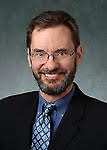The Collectors
by David Newkirk
There is a box in the basement of my parent’s house that says, “Old Toaster – Doesn’t Work.” It is one of a hundred or more boxes that line rows of shelving or hide in closets, carefully packed for possible future needs. My sister and I have dreaded the eventual day we must meet these boxes in combat, waging a war of (hopefully rapid) attrition as they are reduced by sale, donation, or dumpster.
The dies irae arca, the day of box wrath, drew closer when my father passed away. The boxes now hang on to their tenuous existence in a part of the house that my mobility-limited mother cannot enter, the stairs forming a sort of vertical moat. It is not likely that she will ever bend her now-hunched neck to peer under the lids again. For her, the memory of the boxes has faded, lost in the fog of age, and they have become talismans of the past, of years successfully navigated, of a family successfully raised.
To be clear, my parents were not hoarders. They were children of the Depression, a time when things were much more precious because they were so much harder to acquire. Children of a farmer and a mechanic, they avoided the worst. But the shadow of the dustbowl and the memory of how things had gone so wrong so quickly for so many loomed large. Each item acquired was an upraised middle finger pointed at poverty, a fervent declaration that “I will not go without.” With that came the excitement, or perhaps relief, of a life that became ever so slightly easier with each acquisition.
One of my first memories is walking the long blocks from the off-campus student housing near Denver University where my family lived to a thrift store. Sure, there were other stores that the beat-up Nash Rambler could have taken us to—the Joslins, the K-Marts, the F.W. Woolworths—names that are mostly forgotten. But why when the thrift store was there? Wouldn’t buying from those name brand stores be wasteful?
Most of us who are alive now do not understand the Great Depression. Not really. We lived through the crash of ’08, the pandemic panic of ’20, and arguably, the greedflation of ’24. But we did not see ubiquitous bread lines of educated, trained workers exiled into near or actual starvation. The stock traders of ’08 did not leap from the windows, they fled for Cancun. The pandemic briefly brought fourteen percent unemployment—not the sustained twenty-five percent of the thirties. Ration coupons are as alien as distant Mars. We may have experienced uncertainties and economic worries—but not those.
Their memories of the Great Depression makes getting rid of broken toasters all the harder. After all, it could perhaps be repaired, and it will always be waiting if the worst should come again.
There are memories in the boxes, too. There are Christmas decorations that call forth times long gone, like a friendly ghost of Christmas past. Times where their three children barely slept in anticipation of the surprises that were under the tree. Times where the planning, the toy-buying, the surprise-scheming would reach their joyous climax, an affirmation that “Yes, we can do this for our children. They will not lack this.”
The box of the broken toaster still sits in that basement. My sister and I have agreed that we will not begin the desperately needed decluttering until my mother joins my father. It would, I told my sister once, be like taking pieces of my mother away. They were things that once meant something to her, things that in a way were still part of her. Things that preserve the memory of seeing her children grow. Things that recall the eras of her life. They are a part of her, and we will not inflict that additional loss.
It was not greed that filled those boxes. Rather, it was a combination of survival, love, and hope. The things in them are not merely objects, they are dreams, fulfilled, remembered, and memorialized.
They can sit on those shelves, a testament to her protectiveness and love, for as long as it takes.

David Newkirk is a retired attorney living in Kansas City, Missouri. His fiction has appeared in Amazing Stories, Literally Stories, Dark Horse, Night Picnic and other journals. His non-fiction has appeared in Number One. In his spare time, David is unlearning thirty years of writing like a lawyer.